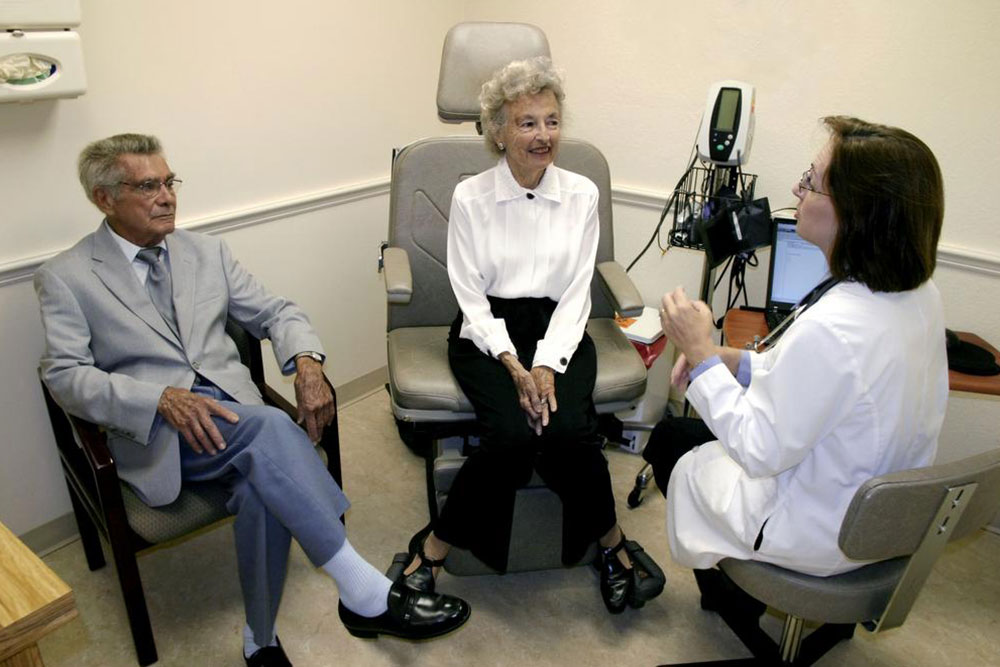Comprehensive Guide to the Seven Stages of Dementia Progression
This detailed article explores the seven stages of dementia progression, providing essential insights into symptoms, duration, and care strategies. It highlights the importance of early diagnosis and tailored treatment at each phase to enhance quality of life for individuals affected by dementia. Caregivers can benefit from understanding these phases to plan appropriate support, safety measures, and emotional care, ultimately improving patient outcomes and caregiver well-being.

Understanding the Seven Progressive Phases of Dementia
Dementia is a complex neurodegenerative condition that advances gradually over time, affecting millions of individuals worldwide. Despite extensive research, a definitive cure for dementia remains elusive. However, advances in medical and supportive care have allowed healthcare providers and caregivers to better manage symptoms, improve quality of life, and slow disease progression through tailored interventions. Recognizing the different stages of dementia is crucial for planning appropriate care strategies, optimizing treatment options, and providing emotional support to patients and their families.
This comprehensive guide details seven distinct phases of dementia progression, offering insights into clinical symptoms, expected duration, and caregiving considerations. While many describe early, middle, and late stages in broad strokes, this detailed classification helps tailor specific interventions at each phase, particularly relevant to conditions like Alzheimer’s disease. Recognizing these phases allows caregivers to anticipate needs, improve safety measures, and implement supportive strategies more effectively.
Phase 1 – No Cognitive Impairment
In this initial stage, individuals show no noticeable signs of cognitive issues. They function independently in daily life, maintaining their usual routines and mental sharpness. Brain health appears unaffected, and no diagnostic signs indicate the onset of dementia. It’s a baseline for health, emphasizing the importance of regular check-ups and brain health awareness to catch early symptoms in future stages.
Phase 2 – Very Mild Forgetfulness
This stage is characterized by subtle memory lapses that are often dismissed as normal aging. Common signs include forgetting names, misplacing items, or occasional lapses in recall of recent events. These symptoms are typically mild and do not significantly interfere with daily routines. Regular cognitive assessments can help identify if these lapses are within normal age-related boundaries or hint toward early cognitive decline.
Phase 3 – Mild Cognitive Changes
Duration of this stage can span up to seven years. Family and friends start noticing increased forgetfulness, reduced efficiency in completing daily tasks, and difficulty concentrating. Individuals may struggle with multitasking or managing complex activities. While they often remain independent, these signs are early indicators of cognitive decline before more severe symptoms develop. Early diagnosis during this phase can facilitate prompt management to slow progression.
Phase 4 – Moderate Cognitive Decline
This stage marks the beginning of noticeable dementia symptoms, lasting around two years. The affected individual begins to forget recent events, faces trouble with planning or problem-solving, and may struggle with familiar activities. Social interactions can become challenging, and confusion about surroundings increases. People at this stage might need supervision when traveling or participating in activities, even if they deny or are unaware of their impairments. Medical adjustments and supportive care become essential to ensure safety and comfort.
Phase 5 – Moderate to Severe Decline
In this critical phase, major memory impairment emerges. Patients often forget significant personal details like their address or the names of close loved ones. They frequently require assistance with basic daily activities such as dressing, grooming, meal preparation, and mobility. Disorientation regarding the date, time, or location becomes common, increasing the risk of accidents or wandering. This stage generally lasts about 1.5 years, emphasizing the need for a structured caregiving plan to address evolving needs.
Phase 6 – Severe Cognitive Disability
Patients in this stage are unable to perform most daily tasks independently. Extensive memory loss hampers recognition of loved ones, and they may lose awareness of their own history or environment. Incontinence, personality changes, hallucinations, agitation, and anxiety are frequently observed. Communication becomes significantly impaired, and mobility may decline further. Care involves comprehensive assistance with hygiene, nutrition, and safety measures. Emotional support for families is equally vital during this phase, as caregivers face increasing demands.
Phase 7 – Very Severe Decline
This final stage signifies maximum functional deterioration. The individual’s ability to communicate diminishes, with speech becoming sparse or non-existent. Motor skills decline, leading to complete dependence on caregivers for all activities of daily living. Breathing, swallowing, and basic movements are affected, and the person may be in a state of near-unconsciousness. Palliative care and compassionate support become paramount to ensure comfort and dignity during this stage. Recognizing the approach of this phase allows families and caregivers to prepare emotionally and practically for end-of-life considerations.





